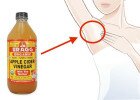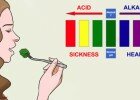Most of the people consider that ‘heart attack’, ‘stroke’, and ‘cardiac arrest’ are the same thing. But that is not true. Even though all of them are related to the heart, they appear from different reason, have different symptoms, and influence on our body.
It is of great importance to distinguish these terms in order to find the proper treatment for them.

Heart Attack – it is a circulation disorder
When a blood flow which is rich in oxygen has a blockage and can’t come to a certain part of the heart muscle, it can cause dead of the muscle, thus leading to heart attack.
When a certain person has a heart attack, it occurs unstoppable beating of the heart.
Cardiac Arrest – it is an ‘electrical’ disorder
If occurs chaos in the electrical activity of the heart, it leads to improper beats of the heart and the process of blood pumping through the entire body is stopped. This is known as cardiac arrest.
At the time of cardiac arrest, the beatings of the heart are stopped completely.
Stroke – it is a brain disorder
There are 3 types of stroke:
- Ischemic stroke – occurs as a result of an artery blockage which is responsible for transporting the blood rich in oxygen to the brain
- Transient ischemic attack (TIA) – it is known as a mini-stroke, and it occurs as a result of a temporal stopping of the artery responsible for carrying the blood which the brain has to transport.
- Hemorrhagic stroke – it occurs as a result of a rupture of an artery inside the brain.
Heart Attack Symptoms:
The following symptoms occur either on the early or on the last few days before the heart attack.
- Chest pain (angina) – is often confused with indigestion and it is known as a burden in the middle of the chest. It occurs and disappears within a couple of minutes.
- Aches in the body – is a pain in the back, abdomen, neck, jaw, arms (the left one)
- Wheezing and shortness of breath
- Developed anxiety
- Cold sweating
- Coughing
- Nausea
- Sensations of dizziness and faintness
These symptoms are not related to the digestive or some other system, but to the heart, thus they can’t be treated with medications or home remedies.
Cardiac Arrest Symptoms:
The individual who is experiencing a cardiac attack can feel symptoms similar to those of heart attack
- Blackout
- Chest pain
- Weakness
- Fainting
- Extreme palpitation
- Shortness of breath
But, in most of the cases, the person experiences:
- Loss of breath
- Loss of pulse
- Lack of responsiveness
- Sudden collapse
These symptoms often result in instant death. People who experienced a heart attack are at higher risk of experiencing a cardiac arrest.
Stroke Symptoms:
- Disrupted speech
- Headaches and vomiting
- Nausea
- Blurred vision, double seeing
- Numbness or paralysis of the face, leg or arm, on one side particularly
- Excessive sweating
- Mental confusion (forgetting places and names, inability to follow a conversation)
- Transient ischemic attack (TIA)
- Inability to walk, along with dizziness
Source: Time For Healthy Food




